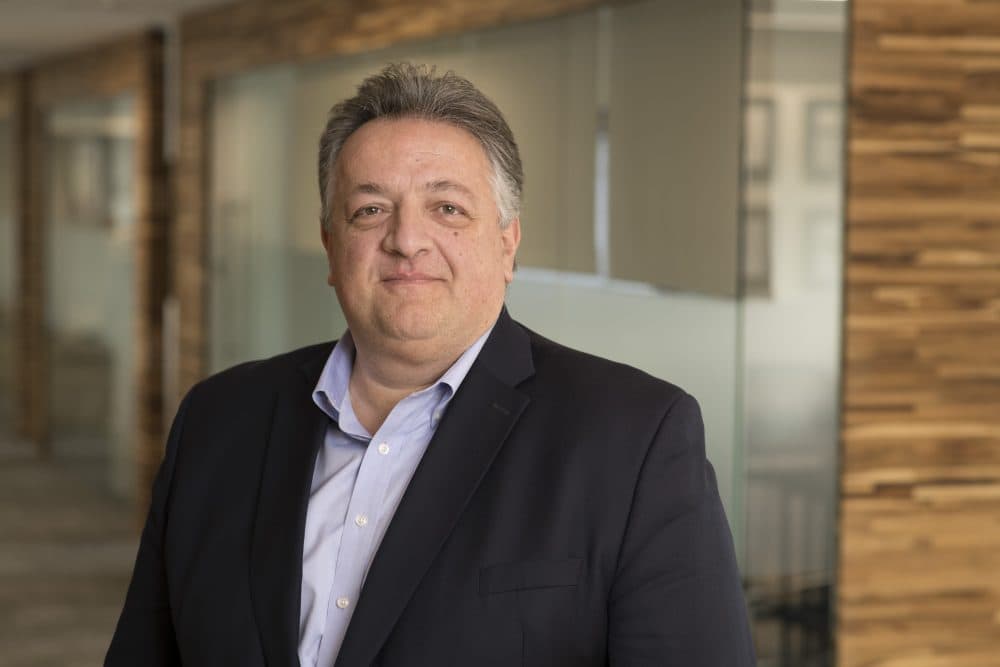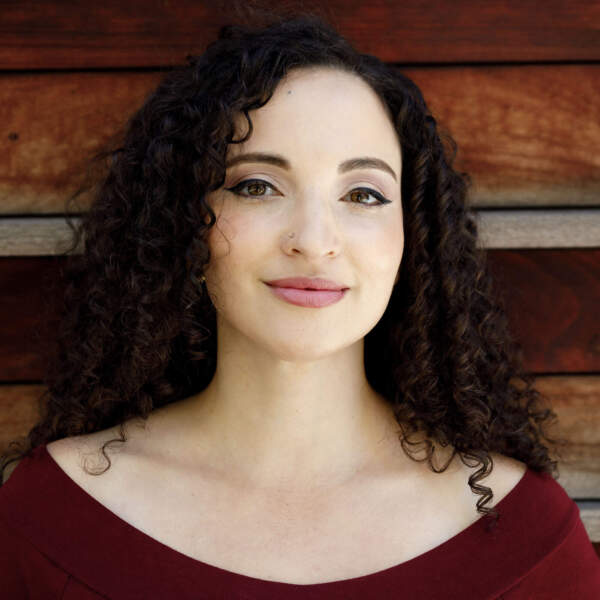Advertisement
BioBoom
One Of Biotech's Biggest Investors Says The Industry Must Be 'Unreasonable'
Resume
Being the biotech capital of the world doesn't just require good science; it requires money -- a lot of it.
To talk about this side of Greater Boston's so-called bioboom, we sat down with one of the industry's most prolific investors: Noubar Afeyan, founder and CEO of Flagship Pioneering in Cambridge.
Afeyan, who has a Ph.D. in biochemical engineering, has helped launch at least 38 companies -- mostly in biotech.
This transcript has been lightly edited.
Why set up shop as a biotech investor in Greater Boston?
I think here there is this ecosystem that's been built of mutually reinforcing academic science, the hospitals and the patient community that's benefiting from a lot of these drugs being developed here. I think we have the core elements here, and I foresee that it will be a very long-term benefit to Boston.
When you're looking at a fresh idea, is it your gut that's talking to you, or is it the data?
I'd say it's a combination of being able to recognize, and being able to get whatever data can be gotten about what future needs might be.
But I will also say, the things we work on are all unreasonable, and I mean that in the literal sense of the word, because only things that are proximal are reasonable. Keep in mind, we’re using science that has not yet been discovered, in order to come up with treatments that have not yet been described, for diseases that are not well understood.
According to PitchBook, biotech firms raised more in the first two months of this year than in all of 2013. What's the key shift that's happened in that time frame that's made all that money available?
I'd say the one big shift that [we’ve seen] is that people are making this less of a bet on a single drug, and more of a bet on a platform which can produce many drugs. All of our companies have decided that the way to innovate and create new products in this field is not by betting on a drug, but to bet on a platform that can generate many. And in that regard, those companies require a lot more capital, but also provide a lot more opportunity for reward than the single bet that used to be the biotech companies of the past.
Let's talk specifically about one of the companies that Flagship helped start: Moderna Therapeutics. It's considered the most valuable VC-backed startup in Massachusetts, worth $7 billion. A lot of people describe it as the ultimate unicorn in biotech. Does this valuation for a company that's not even public yet reflect the changing industry?
One thing I've learned in the 31 years I've been involved in starting companies is that these companies get valued either too cheaply or too expensively depending on how it turns out. We think of Moderna not as one company, but as an assemblage of five or 10 different companies. If you look at how many drugs they have in the clinic, it's about 10 times more than most other biotech companies at this stage.
This expression "unicorn" is used in a derogatory way, because unicorn is what people call things that are not real. This may sound strange, but I would say that a "unicorn" is a revolution that hasn't yet succeeded in technology. … I think every disruptive company is trying to defy the gravity of reasonableness. The thing that keeps ideas firmly planted into mediocrity is what we're fighting.
There's a lot of talk, particularly from the Trump administration, about cutting drug costs — which are astronomical in some cases. As an investor, when you hear someone like the president talk about slashing drug prices, what do you think?
So drugs aren't one thing. There are many drugs that are totally ineffective and the fact that those drugs continue to appreciate in value is unreasonable and they should be actually regulated.
On the other end of the spectrum are drugs that do take a lot of money to develop. The price of these drugs should reflect the impact they're having on the health care system. And I think there are many companies that are now embracing this notion of value-based pricing. If you can show that you have a drug that cures a disease like hepatitis C, compared to a hospital cost and all the inefficiencies involved with simply keeping a patient alive with a disease, you should view that individually in every case.
What are some other innovations you're excited about that you're seeing right now?
The convergence of accumulated biological knowledge at the molecular level that is derived from making molecular measurements, coupled with technology that allows us to process these measurements and run experiments in a faster way, is beginning to allow us to understand simple things about human life that we just had no idea about. For example, we talk about our immune system. We are now beginning to understand precisely how the immune system detects all threats at the molecular level. That will be far more actionable than understanding human DNA. We were all fascinated with being able to read the so-called book of life with our DNA. The reality is our DNA is not easily alterable and doesn't actually reflect disease — it just reflects the potential our cells have for doing things. Well the immune system is doing things. It is our defense department, if you want to call it that. How the defense department fails, and how terrorists, if you will, get in and do their job is an incredibly important front. We are opening that up as we speak. And that's just one of our 13 or so projects that will become external things over the next year or two. So stay tuned.
This segment aired on June 7, 2018.

